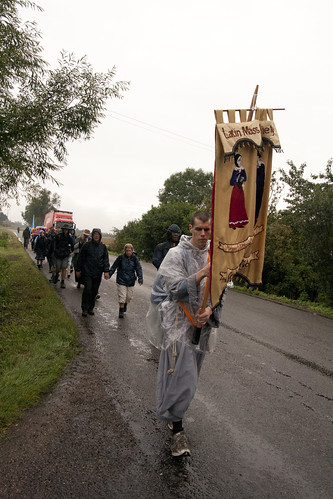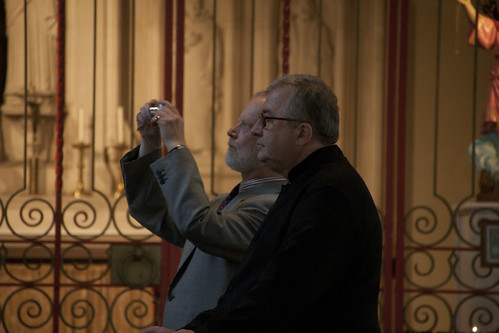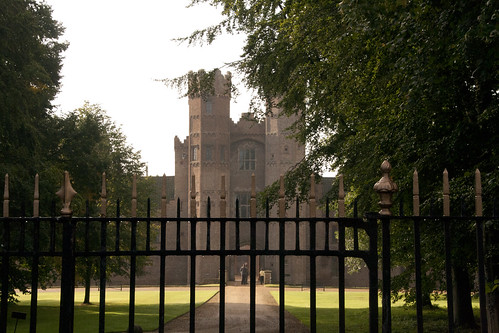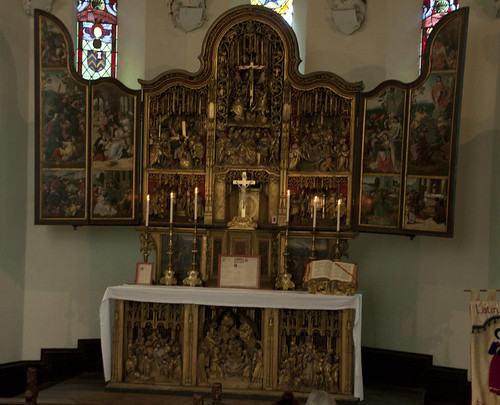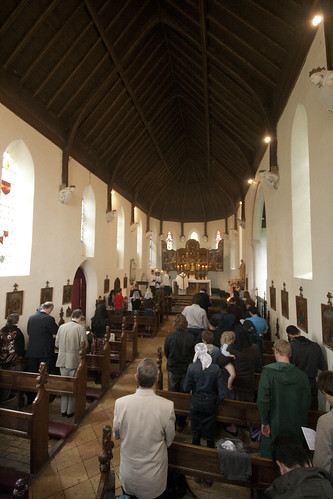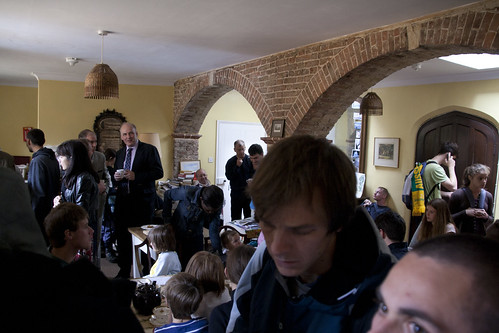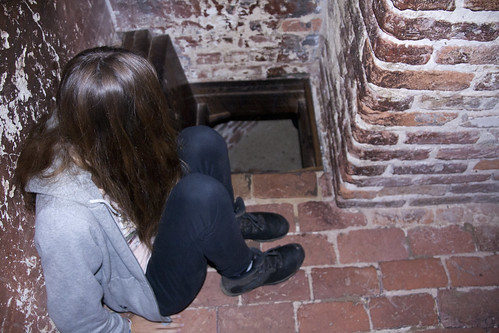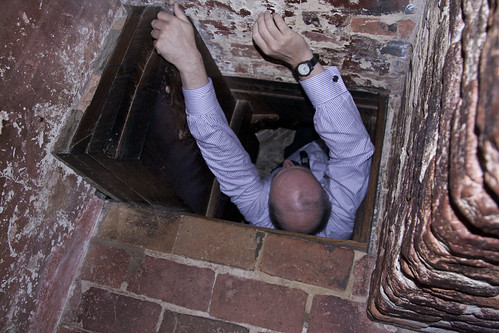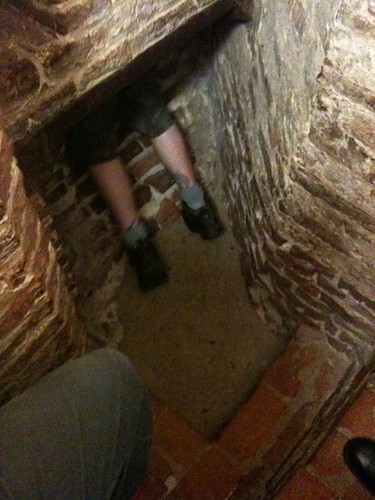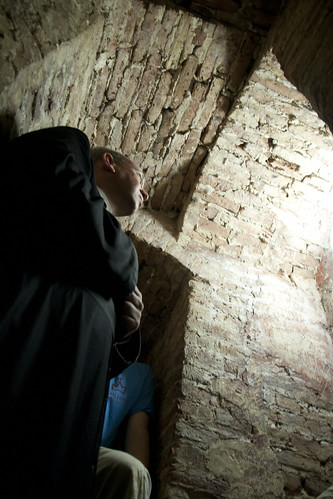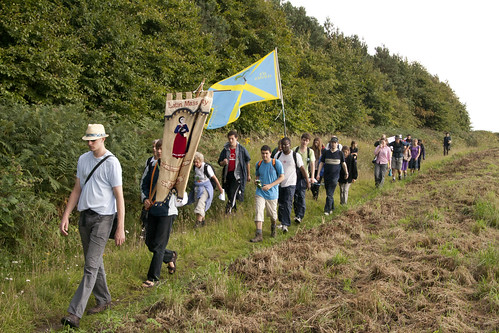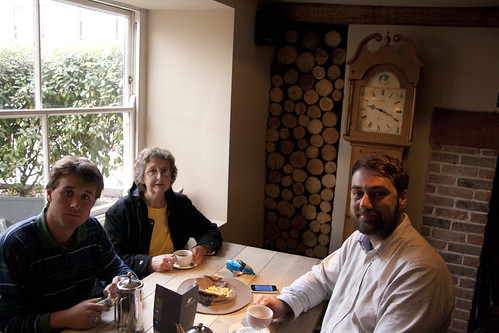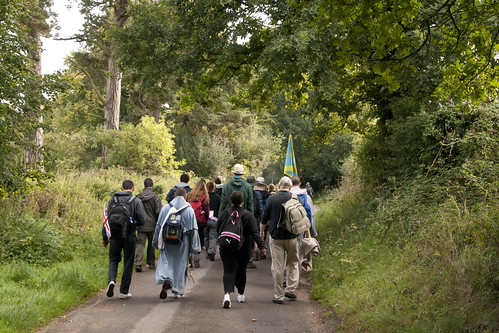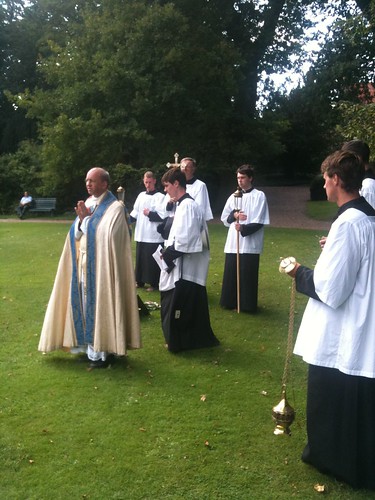
If you don't know the
Roman Forum, then you should find out about them, listen to their downloadable MP3s and, if possible, attend their events. I am envious of the intellectual activity they have been able to generate; I wish we could do some of this here in the UK. I admire Dr Rao and his work enormously.
Here is a plug for their new season's activities, and an appeal for funds, from Dr Rao himself.
---------------------------------
The Roman Forum
11 Carmine St., Apt. 2C
New York, New York 10014
www.romanforum.org
September, 2011
Dear Friends:
The Sack of Rome! Most people think of this in conjunction with barbarian invasions, although the worst assault on the Eternal City actually took place in the Sixteenth Century, when commanders of a “Christian” army justified their soldiers murdering, burning, and plundering the capital of Christendom as divine chastisement for the sins of the Papacy. Despite this horror, it still required a number of years, many more setbacks, and the election of another successor to St. Peter, Paul III, before the Church awoke from her “dogmatic slumbers” to pursue the magnificent work of the Tridentine Reform in earnest. She did this not by choosing “Pope Luther”, as the troops punishing Clement VII in 1527 demanded, but by going back to the sources of the Faith. In returning to Tradition, she also created something new as well: Baroque
Civilization.
The Sack of the final remnants of Christian Civilization in all its forms! That is what we are witnessing in our own time. Although we already have a Pontiff eager to stem such destruction, there are many obstacles, inside and outside the Church, making any progress in doing so ephemeral. Why? One major reason is because we believers are not yet plumbing the fullness of the Catholic Tradition for the answers to dilemmas that could lead to the creation of a fresh Christian Culture. Instead, we continue to listen to liberal, conservative, neo-conservative, and libertarian teachers, providing them soldiers for the Sack of Christian Civilization in the process. The Roman Forum’s mission is that of urging Catholics to flee ideology and open their minds to a return to the complete Christian Tradition; a Tradition that also provides a reliable road map through new, unchartered territory; a road map “back to the future”. How does it fulfill this task?
1) First of all, through our
New York City Church History Lectures.
2) Through our M
odern Image and Catholic Truth Series.
3) Through our
Summer Symposium on Lake Garda, Italy. For two weeks in the summer, a small Italian resort, Gardone Riviera, on Lake Garda, the largest and most beautiful lake in Italy, is literally transformed into an international Catholic village, with daily traditional masses, lectures, camaraderie, superb food and wine, and day trips to surrounding sites, such as Venice and Trent. For participants, many of whom come back year after year and feel like family, it is a rare and wonderful opportunity to experience Catholic life on the continent where Catholic culture first fully came to flower. The Summer Symposium hosts a large international faculty, which has included Dale Ahlquist (G.K. Chesterton Society of America), Patrick Brennan (U. of Villanova), Christopher Ferrara (American Catholic Lawyers Association), Fr. Brian Harrison (Catholic U. of Puerto Rico, Emeritus), James Kalb (author of The Tyranny of Liberalism), Michael Matt (editor of The Remnant), Brian McCall (U. of Oklahoma), John Médaille (U. of Dallas), Fr. Richard Munkelt (Fairfield U.), Fr. Gregory Prendergraft (FSSP), Duncan Stroik (Notre Dame U.), Alice von Hildebrand (Hunter College, Emeritus), David White (US Naval Academy, Emeritus), and myself from the United States; Msgr. Ignacio Barreiro-Carámbula (Human Life International, Rome) and Danilo Castellano (U. of Udine) from Italy; James Bogle (Catholic lawyer, activist, and writer) from the United Kingdom; Miguel Ayuso-Torres (U. of Madrid) from Spain; Thomas Stark (Philosophisch-Theologische Hochschule, St. Pölten), from Austria; David Berlinski (Discovery Institute) and Bernard Dumont (editor of Catholica) from France; and Taivo Niitvaagi (Hereditas Foundation) from Estonia. The late, prolific, traditionalist author Michael Davies, from the UK, and my predecessor as chairman of the Roman Forum, the late William Marra (Fordham U.), were honored speakers for many years. Faculty and students are served spiritually by a large number of secular and religious clergy.
Next year’s Summer Symposium will be a particularly splendid one, marking our twentieth anniversary in Gardone Riviera. Having completed our cycle of historical studies, we will begin our activities in mid-June with a Tour of Greece, the main secular font of Western Civilization. We will then sail to Venice. After several days in Venice, we will move to Gardone at the end of June and early July for our eleven-day academic program. Gardone, 2012, entitled Either
Catholic Political and Social Doctrine---Or the Sack of All Civilized Order, obviously takes its theme from the situation discussed at the beginning of this letter. Please consult our website
(www.romanforum.org) and that of The Remnant Newspaper (www.remnantnewspaper.com) for more complete information on the Greece and Venice Tour, the 2012 Summer Symposium, as well as other future events, like our annual New Year’s Eve Dinner Dance.
4)
Through our Lecture Downloads. 2010-2011 Summer Symposium Lectures are available through The Remnant Newspaper. Almost all of the lectures of our History of Christianity program from 1993-2010 can be downloaded to your computer for only one dollar per lecture or purchased on audiotape at
www.keepthefaith.org.
In order to undertake these projects properly, the Roman Forum needs an annual budget of $50,000. Where do these funds go? Mailings, advertising, books, storage space for them, and use of conference halls alone now cost us at least $15,000 per year. More importantly, most college students, priests, and seminarians hoping to attend the Summer Symposium cannot be present without some financial assistance. Although no one on the teaching faculty receives any compensation for his work there, the daily expenses of all those delivering papers in Gardone
must also be covered. Aiding both speakers and participants therefore takes up almost all of the rest of our annual budget.
But why should we place such an emphasis upon this Summer Symposium? Dr. Ayuso-Torres summarized the chief reason in a lecture in Gardone in 2008: “Unless we traditionalists learn to appreciate the universal nature of the Catholic vision and fight for its general recognition and
victory, we will all rest contented with our own little parochial piece of that heritage, and destroy the entirety in the process”. My Remnant article on this subject, entitled Are Beauty, Camaraderie, and Talk Really Expendable? (see
jcrao.freeshell.org) underlines the same point.
Providing scholarships for such a program to priests, professors, and students can be expensive---but its incalculable fruits will be more and more seen in preaching, teaching, and writing in the years to come.
The Roman Forum may not be able to promise immediate political benefits, but we work with the conviction that what we are doing is being done to good long-term and lasting spiritual and educational effect. To show you our appreciation, we have arranged that the intentions of our benefactors be remembered once a month at a traditional Mass offered in Rome by our chaplain, Msgr. Ignacio Barreiro-Carámbula. With the acknowledgment of your donation, of any size, you will receive a note confirming that you have been enrolled in these Masses. I thank you in advance for your generosity.
Sincerely yours in Christ,
John C. Rao, Chairman, D. Phil. Oxford
Assoc. Prof. of History, St. John's University
 I am catching up with the blogs (having been away from proper internet access for a while) and I don't want to let this post by the Reluctant Sinner to pass without comment, since it relates to Walsingham, to which I've been on pilgrimage recently myself.
I am catching up with the blogs (having been away from proper internet access for a while) and I don't want to let this post by the Reluctant Sinner to pass without comment, since it relates to Walsingham, to which I've been on pilgrimage recently myself.
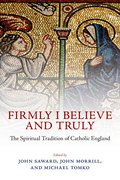

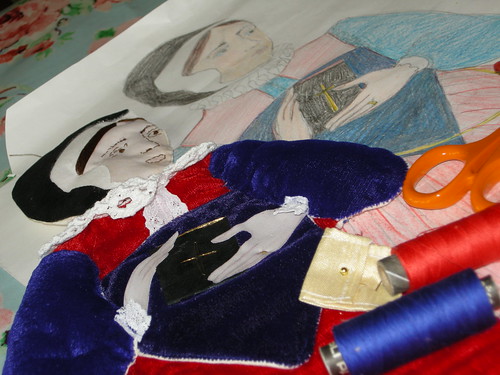
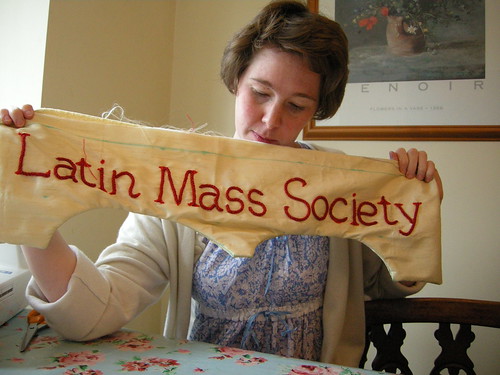
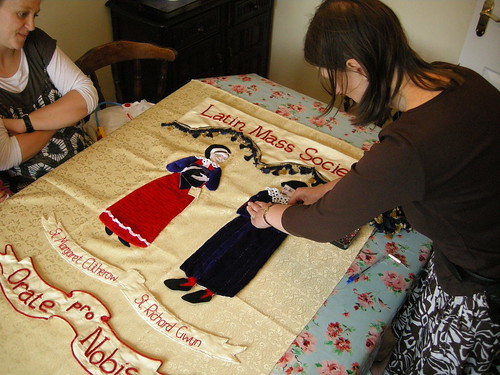
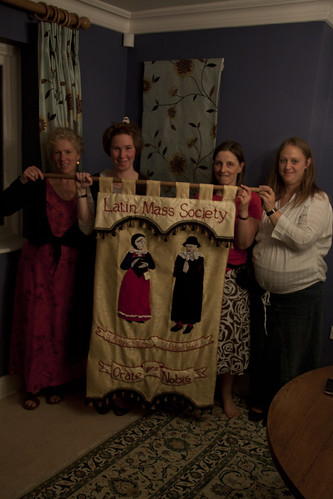
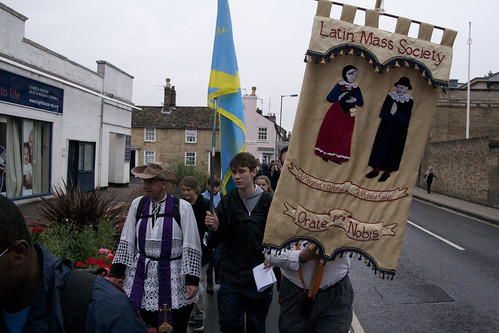
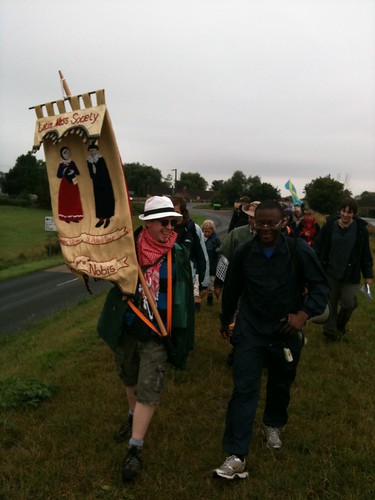
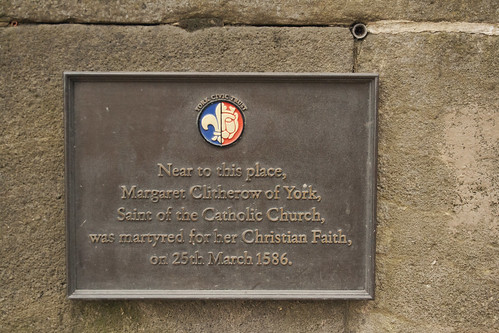
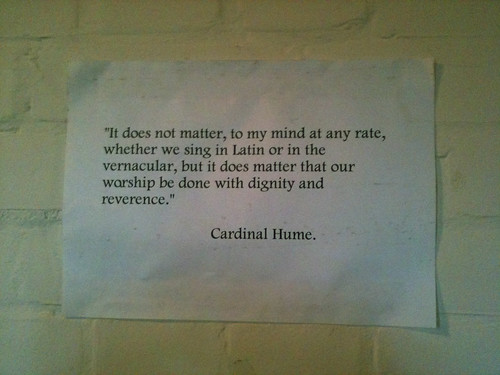


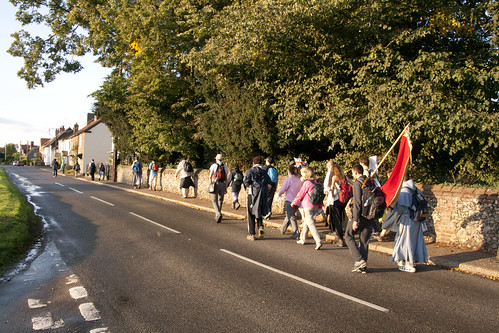
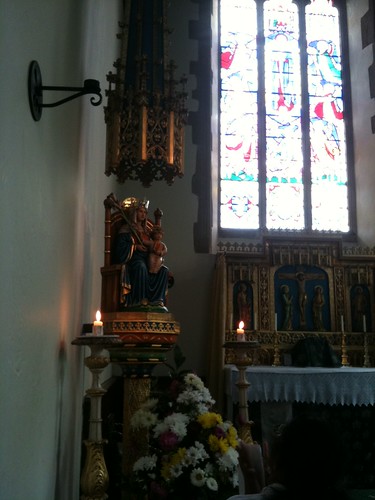



 osals I aim to give, insofar as I can, both attentive criticism and practical help.
osals I aim to give, insofar as I can, both attentive criticism and practical help.







